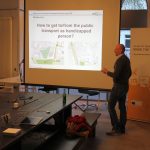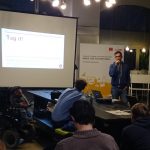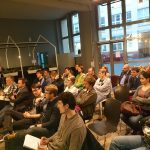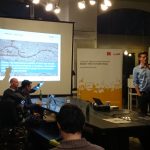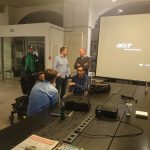
Chances:
The drone industry is diverse, innovative and international. It has an enormous potential for growth with the associated possibility to create jobs. Today there is a fast-developing community that uses Unmanned Systems in general or RPAS in specific, for multiple applications. Some examples are: precision agriculture, infrastructure inspection, wind energy monitoring, pipeline and power inspection, highway monitoring, natural resources monitoring, environmental compliance checking, atmospheric research, media and entertainment, sporting event photography, filming, wildlife protection and research, hunting and anti-hunting monitoring and disaster relief (EASA CONOPS, 2015).In EASA countries there are 2495 operators and 114 RPAS manufacturers. They produce and operate RPAS from very small to medium sizes with a maximum take-off mass (MTOM) below 150kg (EASA CONOPS, 2015).
Worldwide there are different levels of freedom for UAS/RPAS, ranging from complete prohibition to full integration in low-airspace beyond-visual-line-of-sight.
Challenges:
Due to recent reports about different events, the topic of civil use and misuse of unmanned aircraft systems (UAS) is gaining attention. Other terms are „RPAS” – Remotely Piloted Aircraft Systems or plainly “drones”.Especially small UAS (sUAS) are easy to obtain (self-made or purchase), easy to operate and very mobile (vehicle and remote control are portable). sUAS can be fixed-wing, quad-or multicopter, propelled by electric or piston engine and piloted remotely or automatically.Furthermore sUAS are difficult to detect and counteract. Performance and payload capabilities of modern sUAS are raising the question of a possible misuse.
Current and present examples are various, from the disruption of international soccer games, secret observation of French nuclear power plants, smuggling of contraband into prisons to the increasing use of UAS for espionage and intrusion of privacy.
Possible threat scenarios show even more hazardous possibilities of unlawful interference through crime and terrorism. Equipped with a respective payload sUAS can travel the appropriate distance to enter secured areas or perimeters. In this domain of Safety and Security considerations, it is necessary to focus on feasible detection methods against misuse or adversary UAS.
Christian Janke is currently a Research Engineer at the European Aviation Security  Center
(EASC) in Germany. His R&D focus is on Unmanned Aircraft Systems, technology impact assessment in context of legal frameworks and stakeholders. He is currently promoting Unmanned Aviation, like UAV DACH and UVS International in close cooperation with national and international associations. Aim of this engagement is facilitating broad civilian UAS applications by addressing questions like weight classes, visibility minima or insurance context.
Center
(EASC) in Germany. His R&D focus is on Unmanned Aircraft Systems, technology impact assessment in context of legal frameworks and stakeholders. He is currently promoting Unmanned Aviation, like UAV DACH and UVS International in close cooperation with national and international associations. Aim of this engagement is facilitating broad civilian UAS applications by addressing questions like weight classes, visibility minima or insurance context.
 lso be presented.
lso be presented. Christian Maertins works since of the 1990s as Carsharing, Ridesharing, eTicketing, network electric mobility
Christian Maertins works since of the 1990s as Carsharing, Ridesharing, eTicketing, network electric mobility  The idea of Motion Intelligence and its technology Route360° is to simplify the online search for spatial objects (local search) by the use of sophisticated route planning and travel time analysis and visualization.
The idea of Motion Intelligence and its technology Route360° is to simplify the online search for spatial objects (local search) by the use of sophisticated route planning and travel time analysis and visualization.
 e, U.K. and King’s College London, U.K. Founders Iulian Nitescu and Christian Brüggemann started with a research project on efficient routing algorithms in large graphs about 5 years ago. In 2011 Sebastian Heise, as a senior system architect, joined the team and the research project evolved to a product, so as the team evolved to a company. In February 2013 the Graphmasters GmbH was officially founded and counted three members. After a long phase of evaluations from major navigation system providers, we were able to incorporate our routing engine into existing the navigation systems such as BOSCH. Today, we count 11 team members in two offices. Hanover, Germany is the place where product development and testing happens. Robert Dohrendorf complements the management team as experienced MBA in international business. Graphmasters provides apps and services to solve traffic management issues for smart cities and optimize trips for CEP services and logistic industries.
e, U.K. and King’s College London, U.K. Founders Iulian Nitescu and Christian Brüggemann started with a research project on efficient routing algorithms in large graphs about 5 years ago. In 2011 Sebastian Heise, as a senior system architect, joined the team and the research project evolved to a product, so as the team evolved to a company. In February 2013 the Graphmasters GmbH was officially founded and counted three members. After a long phase of evaluations from major navigation system providers, we were able to incorporate our routing engine into existing the navigation systems such as BOSCH. Today, we count 11 team members in two offices. Hanover, Germany is the place where product development and testing happens. Robert Dohrendorf complements the management team as experienced MBA in international business. Graphmasters provides apps and services to solve traffic management issues for smart cities and optimize trips for CEP services and logistic industries.
 Parking spaces are a highly sought-after and often rare, expensive and non-reservable commodity, which results in frustrated car drivers, waste of resources, environmental pollution and increased traffic density. Still inner city parking spaces are often not fully utilized due to limited access or because drivers are simply unaware of their existence. Urs Fischer presents an innovative parking solution for urban areas: parking space sharing. parku gives private persons as well as companies, shops, hotels and even professional parking operators a free platform to advertise their temporarily unused parking spaces, with the option to define availabilities of spaces as well as setting their own fees. Drivers can easily find the nearest parking space by using the parku app or by visiting the website. Here, they can either book their spot well in advance or spontaneously whilst already on the road. Moreover, parku’s SESAME technology enables drivers to easily open barriers and gates by scanning a QR code.
Parking spaces are a highly sought-after and often rare, expensive and non-reservable commodity, which results in frustrated car drivers, waste of resources, environmental pollution and increased traffic density. Still inner city parking spaces are often not fully utilized due to limited access or because drivers are simply unaware of their existence. Urs Fischer presents an innovative parking solution for urban areas: parking space sharing. parku gives private persons as well as companies, shops, hotels and even professional parking operators a free platform to advertise their temporarily unused parking spaces, with the option to define availabilities of spaces as well as setting their own fees. Drivers can easily find the nearest parking space by using the parku app or by visiting the website. Here, they can either book their spot well in advance or spontaneously whilst already on the road. Moreover, parku’s SESAME technology enables drivers to easily open barriers and gates by scanning a QR code.
